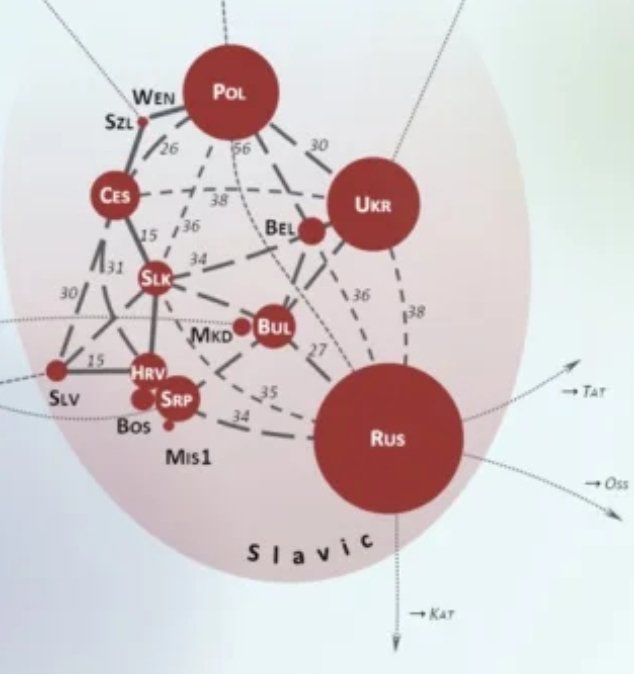To a foreigner, they might sound identical. To a Russian-speaker, Belarusian sounds like a mix of ancient words and gibberish all conjugated in Russian.The grammar is the same and words get conjugated the same, but some words are vastly different.
There is a metric called lexical distance , which defines similarity between languages. In the below diagram for European languages, you can see that the lexical distance between Russian and Belarussian languages (Rus and Blr in the bottom-right corner) is not small at all. Compare it with the distance between Belarussian and Ukrainian (Blr and Ukr).

Examples (Russian on the left)
Свекла (svekla) vs Бурак (burak) meaning “beet”
Лук (luk) vs Цибуля (tsybulya) meaning “onion”
Так (tak) vs Як (yak) meaning “so”
Очень (ochen) vs Вельми (velmi) meaning “very”
Ящик (yashik) vs Шуфлядка (shuflyadka) meaning “drawer”
Other noticeable things regarding pronunciation when going from Russian to Belarusian include the “g” sound being pronounced in the back of the throat (like a French “r”, only much shorter) and the much more frequent use of the letter у (u).
The dental consonants d and t, when they precede one of the vowels e or i, become dz an ts in Belarusian. Thus, the word for “children”, deti in Russian and dzieci in Polish, sounds more like the Polish one in Belarusian.
In Russian, all the o’s become a’s if they come before a stressed vowel. In Belarusian, they are even written a – and even in loanwords, so that the word “communism” is written kamunizm in Belarusian. Also, an unstressed e (or what historically is e) becomes ia in Belarusian, and is even so written.
Belarusian vocabulary is much more like Polish, and there are also some Baltic loanwords (i.e. from Lithuanian, Latvian or some now-defunct related language) in the central vocabulary. An intriguing example is the word siabra (сябра) meaning “friend”, which sounds somewhat similar to the Estonian word sõber “friend” and the demonstrably related Finnish seura “(friendly) company”.
Russia stands a bit apart: is closest to Bulgarian, but quite far from Polish.

